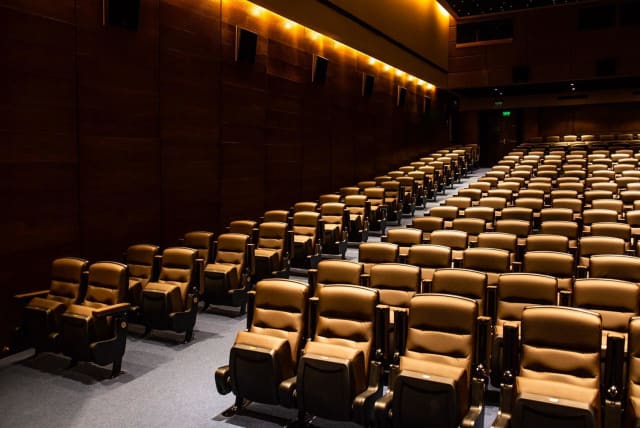The Jerusalem Baroque Orchestra has been doing sterling work in its titular field of musical expression for over three decades now. When conductor-harpsichord player David Shemer founded the ensemble back in 1989 it was with the expressed purpose of giving baroque works their due and naturally, entertaining the public in the process. But, judging by the repertoire of the JBO’s new Mr. Mozart & Dr. Haydn series, the orchestra is beginning to spread its seasoned wings beyond its initial disciplinary confines.
The first of the four-concert run-out takes place at the Rappaport Hall in Haifa on June 24, with performances in Jerusalem, Tel Aviv and Rehovot following over the next three days (all at 8 p.m.). The series header gives the genre game away, with Shemer vacating the conductor’s podium on this occasion, deferring to Russian-born Germany-resident Israeli keyboardist Zvi Meniker, who also takes the solo spot on fortepiano.
The latter is an early form of what became the modern-day piano, and was the de rigueur keyboard instrument from the late 17th century through to the early 19th century. It was particularly favored by composers of the Classical period, including Haydn, Mozart and Beethoven in his younger days.
So it makes perfect sense for Meniker to play fortepiano in a program that features three works by Haydn and a brace by Mozart, including Mozart’s Piano Concerto, K. 466 in D minor and the Overture to Haydn’s opera “L’isola disabitata” (“The uninhabited island”).
Meniker has crossed musical swords with the JBO on several previous occasions.
Having studied at the Salzburg Mozarteum as a teenager, the 59-year-old fortepianist, who also plays harpsichord and organ, fuses seamlessly with the work of Austrian composers. He later attended the Zürich Academy of Music and completed a PhD at Cornell University at Ithaca, New York State, where he wrote a dissertation on “Aspects of performance practice in Frédéric Chopin’s piano works.”
Musical contrasts between serious and fun
The soloist-conductor applauds the JBO’s move into classical areas although, apparently, it is not an entirely novel initiative.
“A long time ago we performed a Mozart concerto together,” he recalls. “I think that was sometime in the 1990s. But it is only recently that they started performing works from the classical repertoire [on a more regular basis].”
Meniker says he was looking to give the audiences oxymoronic value for money when he got down to piecing the program together.
“I wanted to have a sort of contrast between very serious works – the two works we will be playing by Mozart are very serious compositions. They are also very dramatic, that is the [piano] quartet in G minor and the [piano] concerto in D minor.”
That is something of a departure for the feted Salzburg-born composer: “Mozart is predominantly known for his major scale works, which are very ‘positive’ and fun,” Meniker explains.
And there is the other side of the JBO program.
“The works by Haydn are, basically, more humoristic,” he says. Then again, it is not all sweetness, light and smiles there either. “The overture to ‘L’isola disabitata’ is very dramatic. You could say the program is based on contradictions.”
The listening experience should be enhanced by the use of authentic instruments, polemics from certain quarters notwithstanding. “We play period instruments. Some say they are old-fashioned and aren’t good enough,” says Meniker.
He puts that – for him – misguided approach down to an anachronistic line of thinking. “The instruments were superb for the music that was written. At the time they were the latest available. This was a period when they only played new music. Haydn had to write new symphonies for every single concert – that’s why we have over 100 symphonies by him,” Meniker chuckles.
“The instruments were modern. The oboes, for example, were very different from the baroque oboes. And, in particular, the piano among the hammer instruments.” He says his choice of keyboard device is in step with the artistic zeitgeist and the technology of the day.
“The works we will be playing were written around 1780, and the piano only got to Vienna around that time. At the time it was considered as innovative as, say, the synthesizer today. It was really cutting edge.” That helps to put matters into user-friendly historical perspective.
One should also be cognizant of the fact that when they were written and first performed, Mozart’s works, for example, were the popular music of the day. In all likelihood, there was less of a 21st-century reverential air about his concerts back in the day. Meniker says that certainly goes for the charts he has selected for his brief working visit to these shores.
“The concerti were played for the general public in those days,” he notes. “These were public works for everyone and anyone.”
Meniker will be joined on stage by 23 other instrumentalists, including his bassoonist son, Lev Meniker.
For tickets and more information: https://www.jbo.co.il/en/concerts/mr-mozart-and-dr-haydn/S








































































































